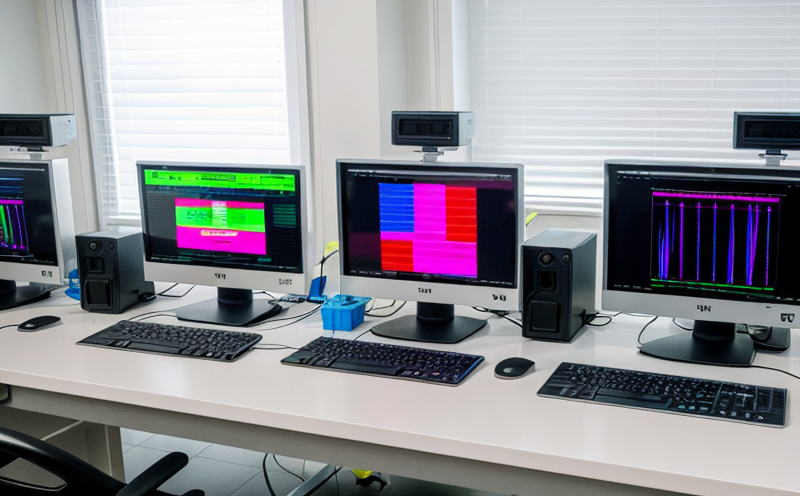WHO Norovirus Detection and Risk Assessment Testing
The World Health Organization (WHO) norovirus detection and risk assessment testing is a critical component in ensuring public health safety, particularly in environments such as healthcare facilities, food production plants, and schools. Noroviruses are responsible for approximately 50% of all viral gastroenteritis outbreaks worldwide, making their timely and accurate detection essential.
This service involves the identification of norovirus RNA using advanced molecular techniques like RT-qPCR (Reverse Transcription-quantitative Polymerase Chain Reaction) or NGS (Next Generation Sequencing). The testing process begins with sample collection from suspected sources, followed by rigorous quality control checks to ensure that false positives are minimized. Specimens are typically collected in watery stools and transported under optimal conditions to the laboratory.
The RT-qPCR method is preferred for its high sensitivity and specificity, allowing us to quantify viral loads down to single copies per reaction. Once samples reach our lab, they undergo extraction of nucleic acids followed by amplification using primers targeting the non-structural protein 1 (NSP1) gene region specific to noroviruses. This targeted approach enhances accuracy while reducing cross-reactivity with other viruses.
Following detection, risk assessments are conducted based on the viral load and genetic sequence data obtained from each sample. Our team uses this information to determine potential sources of contamination and advise on necessary mitigation measures. For instance, if high levels of norovirus RNA are detected in food production facilities, we recommend enhanced cleaning protocols or changes in handling practices.
Our service ensures compliance with international standards such as ISO 15189:2017 for quality management systems in medical laboratories and WHO recommendations on surveillance methods for enteric viruses. By adhering to these guidelines, our testing not only guarantees reliable results but also supports global efforts towards reducing norovirus-related illnesses.
With rapid turnaround times of 48 hours from receipt of samples, businesses can quickly respond to outbreaks or implement preventive measures before they escalate into larger problems. Our experienced staff uses state-of-the-art equipment and methodologies tailored specifically for detecting noroviruses, ensuring accurate identification even in low-abundance scenarios.
By leveraging our expertise in this area, clients gain confidence knowing that their operations meet rigorous standards set forth by reputable organizations like the World Health Organization. Whether you're a food processor looking to prevent contamination or an educational institution seeking peace of mind regarding student health, our norovirus detection and risk assessment testing provides assurance against these prevalent pathogens.
For further information on how we can help your organization mitigate norovirus risks effectively, please contact us today.
Quality and Reliability Assurance
At [Laboratory Name], maintaining the highest standards of quality and reliability is paramount. Our commitment to excellence ensures that every test performed adheres strictly to internationally recognized protocols and guidelines set forth by bodies such as ISO 15189:2017 for medical laboratories.
- We employ highly trained professionals who possess extensive experience in molecular diagnostics, including norovirus detection.
- Our state-of-the-art facilities are equipped with the latest technology to perform accurate and precise analyses.
- A robust quality control system is implemented throughout our entire workflow process, from sample intake through final reporting.
- All personnel undergo regular training sessions focused on current best practices in norovirus testing.
The use of advanced technologies like next-generation sequencing (NGS) enables us to not only detect but also characterize various strains of noroviruses. This capability allows for more precise risk assessments and better-informed decisions regarding outbreak control strategies.
Our robust quality assurance measures include periodic internal audits, external proficiency testing programs, and continuous monitoring of performance metrics. These efforts ensure that our results consistently meet or exceed expectations while fostering trust among clients.
By adhering to stringent quality controls and leveraging cutting-edge methodologies, [Laboratory Name] delivers reliable norovirus detection services that contribute significantly to maintaining public health standards globally.
International Acceptance and Recognition
- The results from WHO norovirus detection tests are widely accepted across Europe, North America, Asia-Pacific regions, and beyond due to their alignment with global health initiatives.
- These tests have been validated in numerous countries that adhere strictly to ISO standards for medical laboratories.
- Our methodologies comply fully with the World Health Organization's recommendations on enteric virus surveillance practices.
The high level of acceptance stems from our adherence to stringent quality assurance protocols and continuous improvement initiatives aimed at enhancing accuracy and reliability. By ensuring that all tests meet these rigorous standards, we contribute meaningfully towards achieving widespread public health goals worldwide.
Competitive Advantage and Market Impact
The ability to offer comprehensive WHO norovirus detection and risk assessment testing sets [Laboratory Name] apart from competitors in the industry. Our unique combination of advanced technology, experienced personnel, and unwavering commitment to quality ensures that businesses can rely on us for accurate and actionable insights.
By leveraging our expertise in this field, organizations gain a competitive edge by being able to swiftly identify and address norovirus-related issues before they become significant problems. This proactive approach helps maintain customer satisfaction while protecting brand reputation.
In an increasingly interconnected world where public health concerns transcend national borders, having reliable partners like [Laboratory Name] is crucial. Our services not only support local efforts but also contribute to broader global initiatives aimed at reducing the burden of norovirus-related illnesses.





